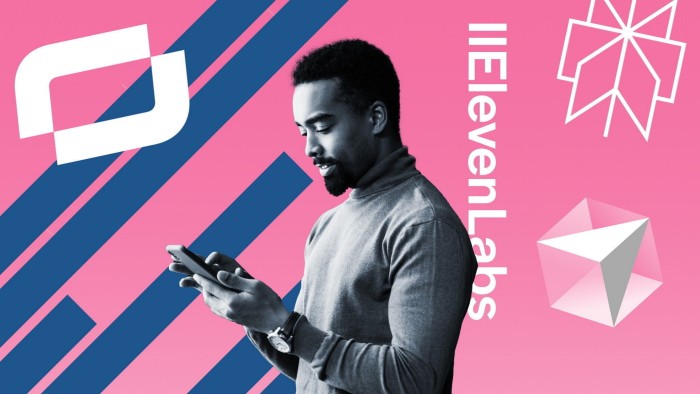Multiple artificial intelligence start-ups making practical “applications” based on large language models are rapidly increasing sales and sparking a race to commercialise the cutting-edge technology.
Investors are betting that companies such as Cursor, Perplexity, Synthesia and ElevenLabs, which build apps on the back of powerful generative AI models from the likes of OpenAI, Google and Anthropic, will drive the uptake of the fast-developing technology across consumers and businesses.
These AI app start-ups are generating tens of millions of dollars in revenue on soaring user numbers, according to people familiar with the businesses. They have also benefited from competition in the LLM market that has cut the cost of using AI to run queries and provide answers to complex problems.
“Many of these start-ups are reaching up to $200mn [in annual recurring revenue] in less than a couple of years, faster than having seen before, and often with very nimble teams driving strong investor interest,” said Lorenzo Chiavarini, head of research, at Dealroom.co.
Start-ups that build AI-powered apps have attracted $8.2bn of funding in 2024, up 110 per cent compared with the previous year, according to data from Dealroom.co and Flashpoint. The funding frenzy is a sign of how hot start-ups developing AI tools can draw in hundreds of millions in investment.
Silicon Valley-based Perplexity, an AI-driven search engine, raised $500mn in December in its fourth round of the year, tripling its valuation to $9bn, and is now looking to raise more money at a much larger valuation, according to people with knowledge of the matter. Meanwhile, legal AI company Harvey raised $300mn in February.
“There is real demand for AI applications from real businesses and real people today at a pace that we’ve never seen before,” said Miles Grimshaw, partner at Thrive Capital. The venture capital group, which has also backed OpenAI, has invested in apps such as Harvey and coding group Anysphere.
Coding app companies have attracted investor interest, with start-ups such as Reflection AI, Poolside, Magic and Codeium all raising hundreds of millions of dollars in the past year for technology that aims to boost software developers’ productivity.
Anysphere, the group behind coding automation tool Cursor, raised $105mn at a $2.5bn valuation in January, and is receiving interest from investors willing to value it at $10bn or more, according to people familiar with the matter.
The three-year-old start-up is generating annual recurring revenues of about $200mn, according to a person with knowledge of the matter.
“People think natural language and English are interesting, but they are not immediately valuable. Code really is,” said Oskar Schulz, president of Anysphere.
Sky-high valuations reflect investors’ hopes that AI app groups will deliver productivity gains in time-consuming and expensive knowledge work, while not needing the heavy investment required of those companies building LLMs.
“Most of these [apps] are productivity tools that create value by combining the natural work that professionals do, especially with each other, and add the AI value to it. This seems to me to create lock-in with their customers,” said Mike Volpi, an AI-focused venture investor. He has invested in Hebbia, which uses AI to search unstructured data sets for information.
“There’s increasing consensus that probably most of the value is going to be created on the application layer and not the foundation [model] layer,” said Victor Riparbelli, the chief executive of Synthesia, a London-based AI avatar maker that was valued at $2.1bn in January.
According to recent research, AI start-ups are making revenues more quickly than previous waves of software companies, suggesting that the technology is generating strong businesses at an unprecedented rate.
According to an analysis of payments information from fintech group Stripe, top AI groups are reaching millions of dollars in sales within a year — far faster in a start-up’s life cycle than comparable non-AI tech groups.
AI app companies also had an advantage of switching models whenever a cheaper or better one comes along, said Bret Taylor, the chair of OpenAI and co-founder of Sierra, which makes AI customer-service agents. The start-up was launched in February 2024 and valued at $4.5bn just months later in October.
“We have changed the models that we use at least five or six times in our short history as a company just because of how rapidly it changes,” said Taylor. “If we were using a model from two years ago, it would be like riding around in a 1950s [car].”
But gauging how sticky customers are and how sustainable the revenues that they represent is a challenge. Given the buzz around AI, early adopters are easy to find, which can flatter growth rates without translating into long-term subscribers.
Some investors have sat out the frenzy around the hottest AI app start-ups on that basis, and are concerned that even the best apps are “wrappers” or services built on top of AI models. The risk is that apps will be supplanted as soon as a bigger company with a larger customer base decides to mimic them.
“Because so many of these companies are new, they haven’t been through an annual renewal cycle with their customers yet. So you often don’t know what the underlying churn numbers are likely to be,” said Hannah Seal, a partner at Index Ventures, who has invested in apps such as legal AI assistant Wordsmith.
But many leading industry figures believe that AI has helped usher in a platform shift, leading to a wave of sustainable businesses in a similar way to the arrival of the internet, mobile and cloud computing.
“There’s probably more uncertainty now in the software market than there has been in my entire career,” said Sierra’s Taylor.




